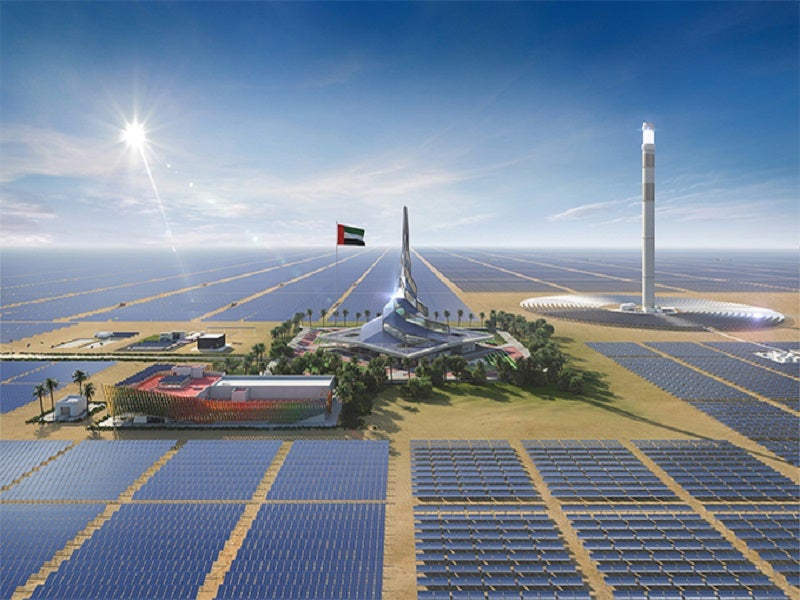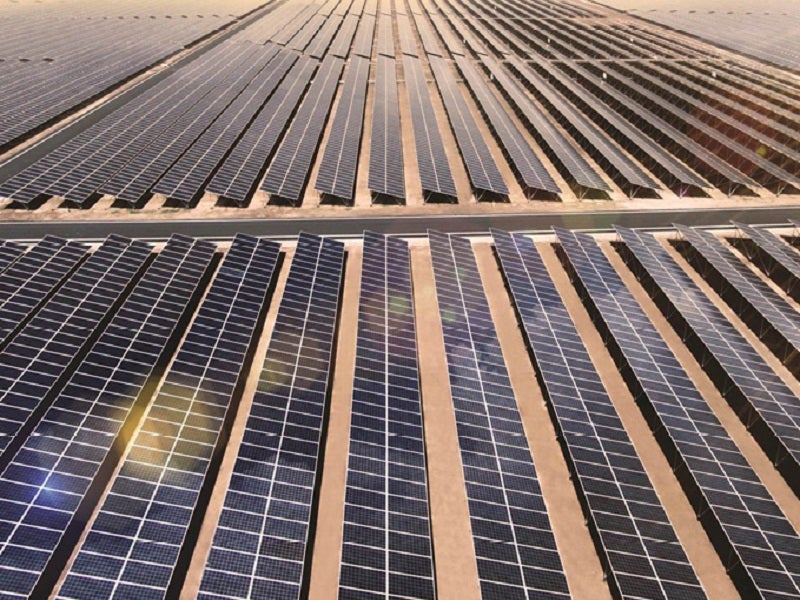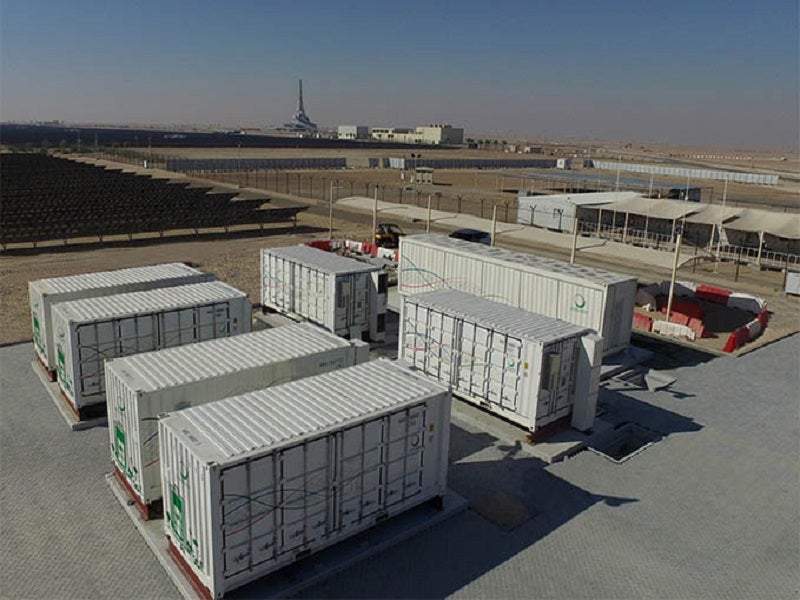The Mohammed bin Rashid Al Maktoum solar park is considered to be the world’s largest independent power producer (IPP) project based on capacity.
Located in Dubai, UAE, the project was launched in 2012 by Dubai’s ruler Mohammed bin Rashid Al Maktoum. It is being developed by Dubai Electricity and Water Authority (DEWA).
The solar park currently has an overall capacity of 1,013MW, developed over three phases. Phase one of the solar park with an installed capacity of 13MW was commissioned in October 2013.
The project was developed as part of the Dubai Clean Strategy 2050, which is aimed at reducing approximately 6.5 million tonnes of carbon emissions in Dubai and to produce 75% of its energy requirements from clean energy sources by 2050. The other renewable sources, which are part of the strategy include natural gas, nuclear energy, and clean coal.
The fourth phase of the project, announced in September 2017, is currently under advance development stage after the closure of an investment decision in March 2019. The 950MW Noor Energy 1 power plant is expected to come online in 2020.
The Mohammed bin Rashid Al Maktoum solar park is expected to generate 5GW by 2030.
Location of Mohammed bin Rashid Al Maktoum solar park
The project is located at a 214km2 site away from dwelling habitats, in Seih Al Dahal area of Dubai. It is approximately 50km south of the commercial and tourist epicentre of the city and about 30km from the crossroads of the Dubai-Al Ain Highway and Al Lusaily road.
Seih Al Dahal is a commune and administrative division in sector 9 of the city and is under the jurisdiction of the Dubai Municipality.
Mohammed bin Rashid Al Maktoum solar park phase one
The Supreme Council of Energy (SCE) for Dubai announced the 13MW phase one project in January 2012. The project was implemented by SCE with an estimated investment of £20.9m (AED124m). The investment and ownership of the plant were shared between six SCE member entities including DEWA, Dubai Municipality (DM), Emirates National Oil Company (ENOC), Dubai Aluminium Company (DUBAL), Dubai Supply Authority (DUSU), and Dubai Petroleum Establishment (DPE).
Phase one comprises of 152,000 photocells, which are connected to 13 step-up transformers in inverter buildings to generate 28 million kWh of electricity annually.
Shuaa Energy 1 and 2 IPP
The 200MW second phase was implemented as an IPP by the Shuaa Energy 1 consortium, led by ACWA Power and TSK with an estimated investment of £262m ($326m or AED1.2bn).
Phase two includes 2.3 million PV solar panels installed over an area of 4.5km2. It is providing electricity to 50,000 residences since it became operational in March 2017.
The 800MW third phase of the project is being developed by the Shuaa Energy 2 consortium led by Masdar after bidding the world’s lowest power bid of $2.99 per kWh in June 2016.
The consortium also includes Électricité de France (EDF), which owns the project via its subsidiary EDF Energies Nouvelles. DEWA owns 60% of the project, while Masdar and EDF Energies Nouvelles own 24% and 16% stake.
Installed on a total area of 4.48km2, the project uses 806,992 sun-tracking tilting PV polycrystalline panels that maximise output. The first 200MW of the project was commissioned in May 2018, while the remaining capacity will be commissioned in stages by 2020.
Noor Energy 1 IPP
The fourth phase of the solar park, Noor Energy 1, is the world’s largest single-site concentrated solar power (CSP) project based on the IPP model.
The project was awarded to a consortium of ACWA Power, The Silk Road Fund, and Shanghai Electric, which is the main contractor. It was initially announced with an installed capacity of 700MW.
DEWA signed an amendment to the 35-year power purchase agreement (PPA) signed in November 2018 to add 250MW of photovoltaic solar panels to the project, which increased the total capacity to 950MW. DEWA will off-take the electricity generated by the project at $7.3 per kWh.
The £2.7bn ($3.9bn) hybrid project will produce 600MW from a parabolic basin complex, 100MW from the world’s tallest concentrated solar power (CSP) at a height of 260m, and 250MW from PV panels.
Scheduled to be commissioned in 2020, the plant will also be equipped with the world’s largest thermal energy storage capacity of 15 hours.
Future phases of Mohammed bin Rashid Al Maktoum solar park
A Request for Qualification (RFQ) was issued by DEWA for the development of the fifth phase. The proposed project will be based on an IPP model and use PV panels to generate 900MW of electricity.
The fifth phase is expected to be commissioned by the second quarter of 2021.
Contractors involved
First Solar was awarded the engineering, procurement and construction (EPC) contract for the construction of phase one of the project. It was also responsible for the development of a 33kV substation, and connection to the DEWA grid.
A consortium led by GranSolar, Acciona, and Ghella was awarded the EPC contract for phase three of the project.
ABB was contracted by DEWA to integrate solar energy at the site to energise a 400/132kV gas-insulated switchgear (GIS) substation for the second phase. It was also responsible for the supply of power transformers, protection, automation, and control systems as well as surveillance and communication systems.





